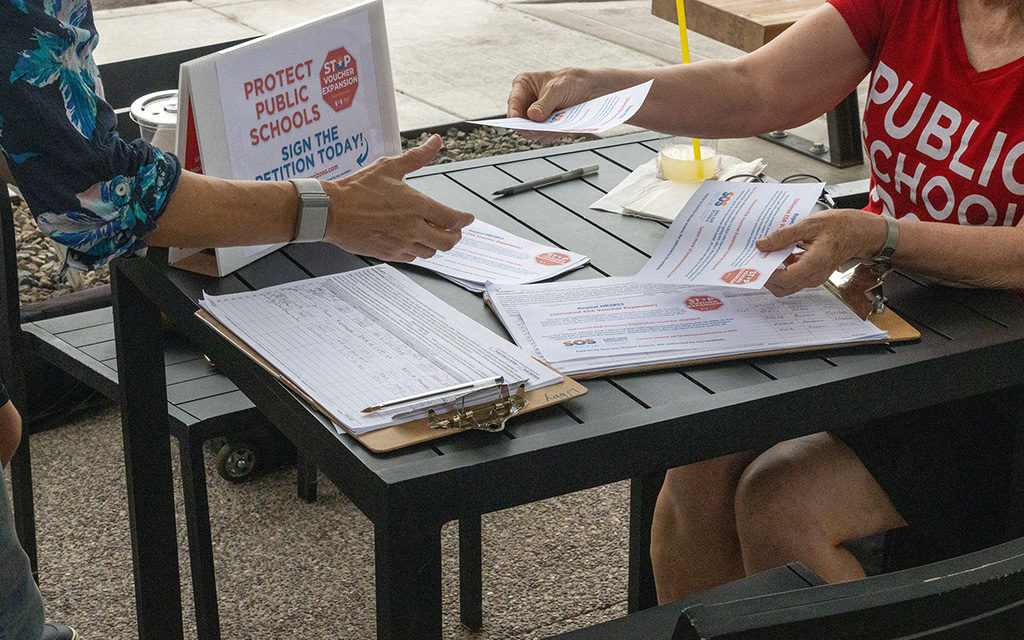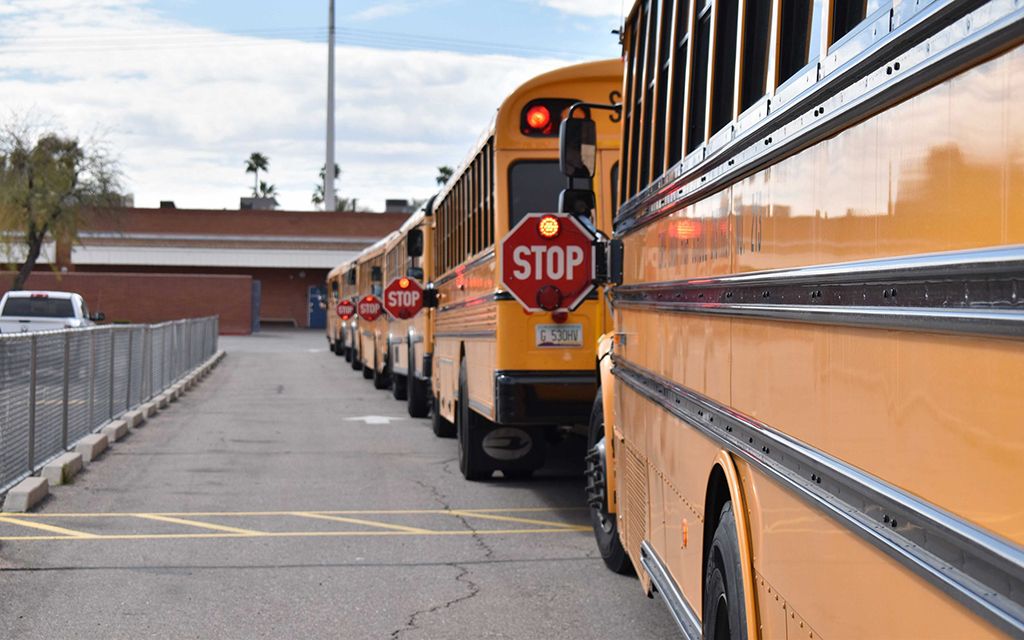WASHINGTON – Arizona parents have flocked to apply for the state’s new universal Empowerment Scholarship Accounts, which let any family apply for state funds to pay for their child’s schooling, regardless of need.
The Arizona Department of Education said about 32,000 schoolkids applied this fall for the first round of expanded ESA funding, which can award up to $6,500 per year per student from the state’s general education fund.
If all the applications are approved, it could mean more than $200 million in state funds would be transferred from state schools to those families – a frightening drain on the public schools, according to some advocates. But to Jenny Clark, a mother and staunch advocate for ESAs, it is money well-spent.
“That number is really exciting to me because that means there are that many more kids that are going to get the education environment that works for them,” Clark said.
The money is offered in exchange for students not attending public school, which supporters say should ease the burden on those schools and lessen their need for funding.
But Beth Lewis, executive director at Save Our Schools Arizona, said all it does is starve public schools of funds that should be helping them educate their students. She questions who will really benefit from the vouchers.
“We’ve got a mass teacher exodus right now because teachers aren’t getting paid what they deserve, and their working conditions are horrible. And yet, our state legislature is solely focused on expanding private school vouchers,” Lewis said.
The ESA program is not new to Arizona. But when it was started 11 years ago, it was limited to students with special needs or those in failing schools.
When Clark learned about the program four years ago, she was dealing with a public school system that she said was unable to find help for her two boys, who have been diagnosed with dyslexia. She said the vouchers her family got through the ESA program changed all that.
“I was very excited because it was exactly what we needed to be able to have the funds to pay for our kids’ curriculum,” Clark said.
Lawmakers this year expanded the program to make it available to any child, regardless of need, and the money can be used to pay for private school, tutoring, online or other schooling. Funding varies based on several factors, but students in first- through 12th-grade are eligible for up to $6,500.
“We have no idea whether these students are learning, how they’re learning, what they’re learning,” Lewis said. “It’s a really dangerous premise for where we’re heading in education.”
Chris Kotterman echoed Lewis. Kotterman, the director of government relations for the Arizona School Boards Association, said the universal ESA program will make it harder for state school systems to match each and every student’s needs.
“It is impossible for the state to fund an education that every single parent finds to be 100% acceptable, 24 hours a day, seven days a week, 365 days a year. That is not how society works,” Kotterman said.
Applications for the first round of the expanded ESA program opened on July 1 and were accepted through Oct. 15. Acceptance letters were expected to go out to families in November, with the state Department of Education saying employees were working seven days a week to process the thousands of applications.
If approved, families are notified via email and then have to enter into a contract with the department to get the funding, which could be used for school costs incurred in the first quarter of this school year.
Lewis’ group mounted an unsuccessful petition drive to block the expanded ESA program and put it on the 2024 ballot. While that effort failed, she still had a plea for parents.
“If you want to help our kids, invest in our local community schools,” she said. “Anybody who works in education knows this to be true.”


